Iran To Ease Laws On Police Use Of Firearms
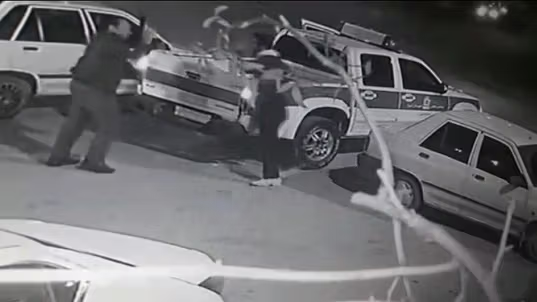
Following the death of a police officer, Iranian authorities are contemplating to change laws to give more freedom to police for using firearms.

Following the death of a police officer, Iranian authorities are contemplating to change laws to give more freedom to police for using firearms.
On Friday, Iran's Police Chief Brigadier General Hossein Ashtari called on the parliament, the judiciary, and the ministry of justice for amendments to current laws.
Parliament Speaker Mohammad Bagher Ghalibaf promised to consider it immediately and ordered a draft of amendments to be prepared.
The move to ease the use of firearms by police was prompted after a police officer was killed by knife stabs on his neck and body in a confrontation with a criminal in Fars province on Wednesday.
According to current law, police can use firearms in at least 10 situations, including for self-defense or defense of others. In such cases, officers should give verbal warnings before firing warning shot. Then they can shoot at the lower body, and if necessary, shoot at the upper body.
It is not clear which part of the law will be amended but many fear that it is can be used to let police use guns whenever they want, especially during protests that have been frequently taking place in Iran.
In the past, the government has shot protesters labeling them ‘thugs and criminals.’
In October 2021, the UN Special Rapporteur for Iran said that police often use lethal force against protesters and international human rights organizations have accused Iran of killing hundreds of protesters since late 2017, using military ammunition.
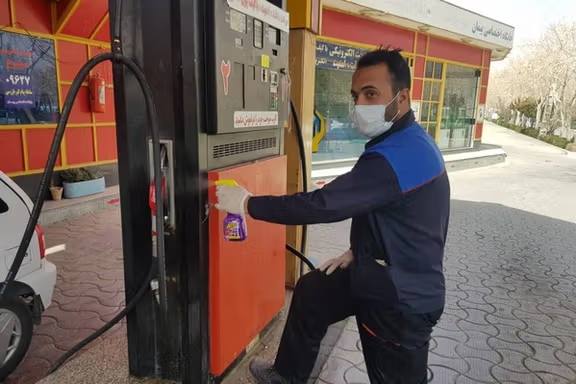
Iran offers the highest amount of energy subsidies in the world, the government news agency IRNA has highlighted amid a big financial crunch and budget deficit.
In a detailed article on Friday, IRNA again raised the issue of subsidies, this time the cheap energy the Islamic Republic has been providing to businesses and individuals for more than 40 years, costing the government hundreds of billions of dollars.
The ultra-conservative government of President Ebrahim Raisi that assumed power last August has been hammering on the issues of food and fuel subsidies amid United States sanctions that have drained its coffers. His administration is in a position to raise the issue, since ultra-conservatives are in full control of both the executive and the parliament, without fear of any organized opposition.
IRNA says that in total Iran paid almost $30 in indirect energy subsidies in 2020, as it sold gasoline, diesel, electricity and natural gas eight times cheaper to its people than minimum prices in the Persian Gulf region, which already has low prices.
The result was that compared to world total of $181 billion in energy subsidies, Iran was the biggest single provider with more than 16 percent of the world total. If we look at the breakdown, the government offered indirect subsidies of $5 billion in oil products, $12.5 billion in electricity and $12.2 billion in natural gas.
Iran’s share of global natural gas subsidies is 33 percent and for gasoline 35 percent.
A gallon of gasoline is sold to people for a little over 20 US cents, while in the Persian Gulf region bulk gasoline prices are over two dollars a gallon.
No one really can say why the government has kept selling energy so cheaply for the last 33 years, after wartime emergency ended when the Iraq-Iran eight-year conflict came to a close in 1988. The revolutionary Islamic government that came to power in 1979 promised free electricity and water to the population and then war broke out in 1980, which forced the new regime to guarantee the essential amount of food and necessities to a shell-shocked population.
After the war, as a new government somewhat liberalized the economy, no one seriously dealt with the problem of energy subsidies, although some occasionally raised the issue. But overtime the low rate for electricity and gas resulted in extremely high usage by consumers, to the extent that Iranian households have one the highest rates of gas consumption in the world.
Iran is third after Russia and the United States in per capita gas consumption, to the extent that as the holder of the second largest gas reserves in the world it is barely able to satisfy domestic consumption, with little left for export to Iraq and Turkey.
Still, the $30 billion spent to provide cheap energy cited by the government would be much higher if the Iranian currency had not lost its value eightfold since 2017. The subsidy amount converted into dollars is much less than the $45 billion mentioned a few years ago as annual energy subsidy cost. In 40 years, the total for energy subsidies would be more than one trillion dollars, a huge amount for a country that has lagged in investments into its oil and gas sector.
Although the Raisi administration seems to be more than willing to reduce subsidies, the regime as a whole is not ready for the possible political risks involved. In November 2019 when the government raised gasoline prices, unrest engulfed the country and ended with hundreds dead as security forces used military weapons to fire on protesters.
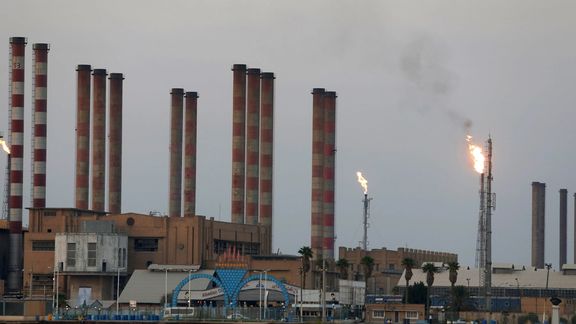
Iran is increasingly using international barter, exporting hundreds of thousands of tons of oil derivatives to Brazil in return for livestock feed.
Zabihollah Azami-Sardoui, a member of parliament’s agriculture committee, told the Iranian Labour News Agency (ILNA) that Brazil was a suitable match as it needed petrochemical products, especially nitrogen-based fertilizers, and could in return supply corn, soybean meal, and meat.
Iran has expanded barter to circumvent United States ‘maximum pressure’ sanctions, which threaten punitive action against any third party buying Iranian oil or dealing with Iran’s financial sector. Bartering oil for of imports animal feed and agricultural products has proved particularly viable.
Barter can be effective where there is a rough trade balance, but is less practical where trade is imbalanced. Azami-Sardoui said challenges in bartering were being overcome.
Some have criticized the practicalities of such arrangements. "We had not signed clear agreements with China for bartering,” Masoud Daneshmand, a business representative in Tehran, told ILNA in January. “We gave them oil and told them to pay in kind. In such circumstances, they give us all their inferior quality products including the pesticides that have caused so much damage to our agricultural exports.”
Daneshmand also took issue with an agreement to receive tea from Sri Lanka as ‘payment’ for a nearly decade-old $251-million oil debt. At least until US ‘maximum pressure’ sanctions were introduced in 2018, Iranians were among the top ten drinkers of Sri Lanki tea.
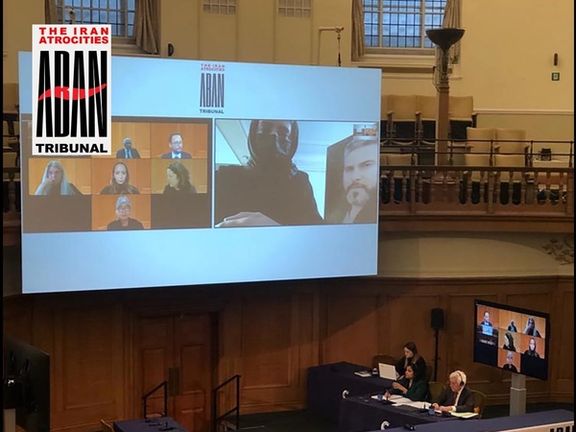
The second round of a ‘people’s tribunal’ to investigate killings of protesters and rights violations by Iran has begun behind closed doors due to security reasons.
This round of the People’s Tribunal, organized by human rights groups, began work in London on Friday and will continue until Sunday.
The hearings in this round will be held behind closed doors because of considerations for the security of the witnesses, and only a selected number of journalists are invited to attend the sessions.
The human rights advocates who are engaged in the tribunal say after the first round that was held in November 2021, at least 116 new people volunteered to provide evidence about the bloody November 2019 protests that is the focus of the panels.
The protests were the bloodiest in Iran’s history with security forces opening fire on demonstrators in many cities, killing hundreds. Thousand were arrested and jailed without due process of law and there were numerous reports of torture in prison.
In the November session, the tribunal accused Iran’s top leadership of crimes against humanity and experts argued that there could be no question of impunity for political leaders.
The panel of the Tribunal has identified 27 more state actors as perpetrators of the violence, which brings the number of those accused of committing crimes under international law to 160.
The tribunal − also known as Aban Tribunal after the Iranian calendar month of Aban − was established on the first anniversary of the 2019 protests by the London-based Justice for Iran, the Oslo-based Iran Human Rights (IHR), and the international anti-capital punishment organization Ensemble Contre la Peine de Mort (Together Against the Death Penalty). The verdicts of the Tribunal will be symbolic.
The tribunal will hear and examine evidence and testimonies on crimes against humanity, extrajudicial killings and executions, torture, rape of prisoners, and harassment of the families of the victims which organizers say all indicate an extensive systematic state policy behind suppressing protesters. The Iranian Constitution recognizes the right to peaceful protests.
During the first round, the Atrocities Tribunal said that Iran’s top nuclear negotiator Ali Bagheri-Kani demanded that Britain stop the sessions.
Quoting unnamed “European sources”, the official Twitter channel of the Tribunal said the Iranian diplomat, who visited the UK Foreign Office on November 11, had threatened to stop part of his nuclear talks with world powers if the Tribunal continued its work.
After the first round was held, some hardline media in Iran called the tribunal a British stunt to shift attention from £400 million owed to Iran, while others said the United States or Zionists had set up a theatrical show, but it appears the event had enough impact on public opinion that Iran’s hardliners chose to react.
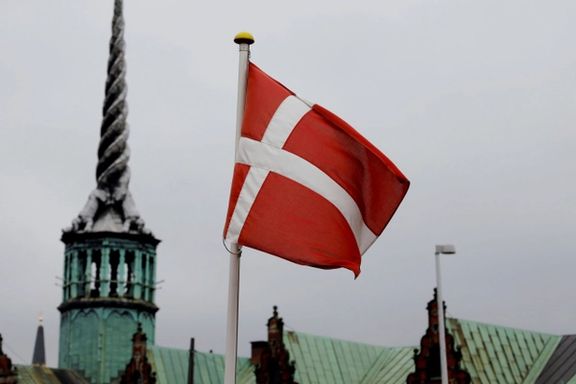
A Danish district court on Friday found three members of an Iranian Arab opposition group guilty of financing and supporting terrorist activity in Iran in collaboration with Saudi Arabian intelligence services as well as espionage.
The three members of the Arab Struggle Movement for the Liberation of Ahvaz (ASMLA) were arrested two years ago and have been in custody since.
The defendants face prison sentences of up to 12 years for numerous offences, including providing information about Danish and foreign organizations and individuals to a Saudi Arabian intelligence service.
The court will decide on sentencing in March.
All three defendants also face potential deportation, and one also risks having his Danish citizenship revoked.
ASMLA seeks a separate state for ethnic Arabs in Iran's oil-producing southwestern province of Khuzestan. Arabs are a minority in Iran, and some see themselves as under Persian occupation and want independence or autonomy.
The three men were also convicted of endorsing attacks against Iran and supporting the militant group Jaish al-Adl, which operates in Iran and is listed as a terrorist organization by the United States.
In a related case, a Norwegian of Iranian heritage was sentenced to seven years in May last year for spying for an Iranian intelligence service and plotting to assassinate one of the ASMLA-members.
The two cases have exposed an intelligence power struggle on Danish soil between Saudi Arabia and Iran, and led Denmark to call for EU-wide sanctions on Iran in 2018 following the Norwegian man's arrest.
Reuters' Report
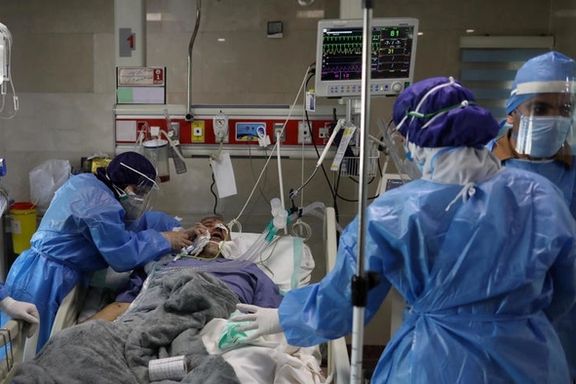
Iran's health ministry has declared a hospital emergency as the Omicron variant of Covid-19 grips the country. Nearly 80 Iranian cities are deemed "red zones.”
After a few weeks of relative calm, only 11 cities still show ‘blue’ on the Covid map, with Tehran among the ‘red’ cities and 180 cities categorized as "orange.”
Health authorities, who have said the country is in a sixth wave of the pandemic, expect infections to rise to “up to” 400,000 daily cases with three-digit daily death figures. The health ministry said Thursday that numbers in hospital had increased by 64 percent in a week to over 18,000.
On Saturday parliament's open sessions and committee meetings were cancelled as 47 of 290 lawmakers as well as 30 staff members had tested positive for Covid.
A member of the Scientific Committee of the national Covid taskforce, Hamidreza Abtahi, told the Iranian Labour News Agency (ILNA) Friday that Omicron was spreading faster than expected.
Abtahi expressed concern over plans to re-open schools and to hold gatherings during the ten-day Fajr period that ends on the anniversary of the 1979 Revolution on February 11. He cited the Fajr film and theater festivals, as well as Etekaf (from the Arabic for ‘adhering to’) ceremonies, scheduled this year for February 15-18, during which large numbers pray in mosques throughout day and night. The government has yet to announce restrictions on any of these activities.
Infections rose to over 37,000 Thursday, with 2,000 of those hospitalized. The death toll from Covid was reported at 61 for the 24-hour period ending Thursday noon.
Abtahi said cases requiring hospitalization had not increased at the same pace as under earlier Covid waves. An official of Zanjan Medical Sciences University, Mashoud Taghilou, told Tasnim news agency Friday that while infections in Zanjan province had jumped 20-fold in ten days, the numbers hospitalized had tripled and the numbers requiring intensive care doubled.
Iran has reported 6.48 million cases and over 132,600 deaths, since it became the second country in the world to declare an epidemic in February 2020. Critics accuse the government of underreporting Covid cases and deaths, although Iran has reported the highest number of deaths than all the other countries in the region and the second highest number of infections.
With around 66 percent of people vaccinated, Iran has reported 6.5 million cases compared to 12 million in Turkey with 85 percent vaccinated, 433,000 in Egypt, which has vaccinated 27 percent and has a larger population. The United Arab Emirates has vaccinated 96 percent and Iraq just 16 percent.
According to official figures so far over 60 million Iranians have received one dose, 54 million have had two doses, and 18 million have also had a booster.
Abtahi said authorities were concerned over the number of children with the virus, with most children not vaccinated and intensive care facilities in children's hospitals were limited. The committee, he said, had urged the authorities to vaccinate children between five and twelve urgently.
The World Bank in January approved a $90 million loan to help Iran manage the pandemic. "This funding will not go to the Iranian budget and all loan proceeds, as well as procurement and disbursements, are being managed by the World Health Organization,” a World Bank Spokesman told the AFP news agency.